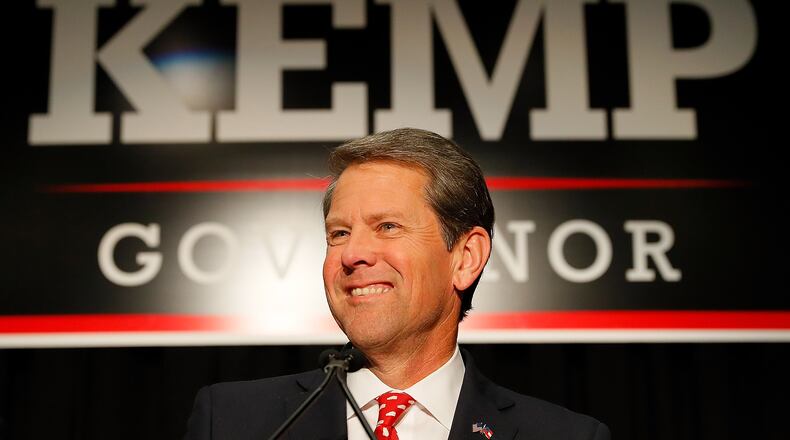Georgia Gov. Brian Kemp made a substantial down payment on his campaign promises Thursday, recommending that teachers get a $3,000 raise and state employees a 2 percent pay hike.
If the budget Kemp proposed Thursday is approved, the raises will put more money into the paychecks of more than 200,000 educators and state employees in Georgia.
Kemp promised a $5,000 teacher pay raise on the campaign trail, but the price tag -- about $700 million -- had budget writers concerned.
The $3,000 pay raise Kemp proposed for fiscal 2020, which begins July 1, is a substantial down payment on the promise he said he’ll still keep, and something the governor said is vitally needed because so many teachers are leaving the profession within their first five years on the job.
“To recruit and retain the best and brightest in our schools we must remove heavy burdens in the classroom and keep teacher pay competitive,” Kemp told lawmakers in his State of the State address.
The governor called it the biggest raise in state history.
Gov. Zell Miller pushed 6 percent pay raises for four years during his second term in the 1990s in an effort to make average teacher pay in Georgia the highest in the Southeast.
A $3,000 teacher raise would cost about $418 million, according to an estimate by the Georgia Budget & Policy Institute.
While educators probably expected a raise since Kemp had touted it on the campaign trail last fall, the 2 percent pay raise for state employees may be more of a surprise.
Pay raises for state employees have been few and far between since the Great Recession hit in the late 2000s.
The governor also reiterated that his recommendations include $69 million in one-time funding for school security grants.
All 2,294 public schools in the state would receive $30,000 to implement school security.
State lawmakers included similar grants to districts during the 2018 session. Kemp also wants $8.4 million for mental health programs in Georgia high schools.
“To keep our classrooms safe, we must also address the mental health issues that often lead to school violence,” he told lawmakers.
About the Author
The Latest
Featured

